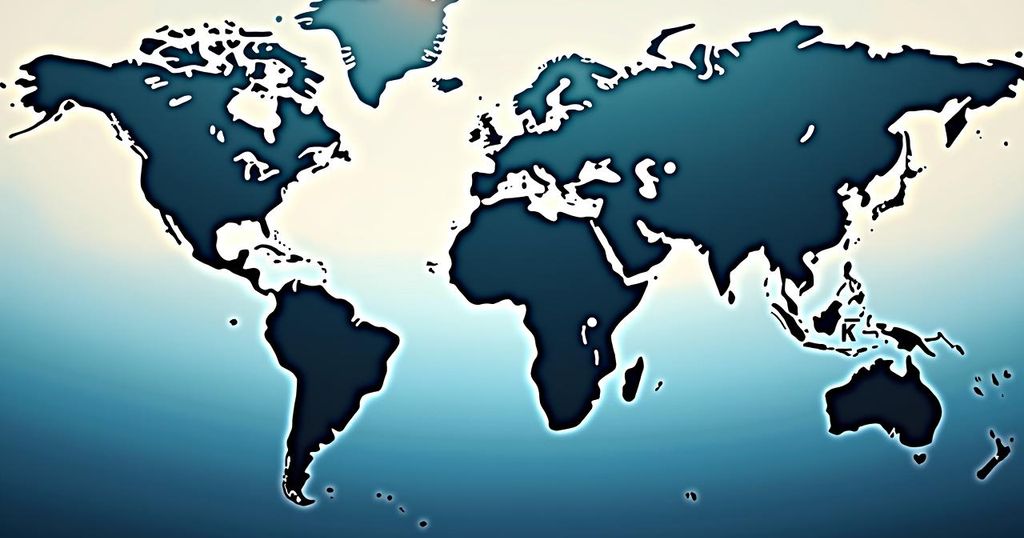UN Alerts to Growing Erraticism in the World’s Water Cycle

The United Nations has warned that the global water cycle is becoming increasingly erratic due to climate change, with significant impacts including record low river levels and extensive glacier melt. The report highlights a drastic increase in floods and droughts, particularly affecting regions like Africa. Currently, 3.6 billion people lack adequate access to fresh water, a figure projected to rise dramatically by 2050. The WMO calls for urgent action, including improved water resource management and emission reductions, to address these critical challenges.
The United Nations has issued a stark warning regarding the global water cycle, highlighting that it is becoming increasingly erratic and unpredictable due to climate change. In a report shared by the UN’s World Meteorological Organization (WMO), it was emphasized that last year saw the world’s rivers at their driest levels in over three decades, alongside significant glacier melting and a concerning rise in both floods and droughts. WMO Secretary-General Celeste Saulo articulated that extreme precipitation patterns and severe droughts serve as distress signals indicating the adverse impacts of global warming. “Water is the canary in the coalmine of climate change,” Saulo remarked, underscoring the cascading effects these water cycle disruptions have on human life, ecosystems, and economies. The report details the alarming trend of increased atmospheric temperatures resulting in more volatile weather patterns, with the previous year being recorded as the hottest on record. Globally, a substantial number of individuals face water scarcity, with the UN estimating that 3.6 billion people are deprived of sufficient access to fresh water at least once monthly. This number is projected to rise significantly to over five billion by 2050. The WMO highlighted that Africa bore the brunt of these climatic disturbances last year, with devastating floods in regions such as Libya leading to the loss of thousands of lives. Additionally, data indicate that the planet has witnessed unprecedented rates of glacier melt, exacerbating long-term water security challenges for millions. Furthermore, the report advocates for enhanced monitoring of freshwater resources and the necessity for urgent action to address greenhouse gas emissions. It urges global leaders to invest in necessary infrastructure and better water conservation practices, especially in agricultural sectors, to mitigate the impact of these increasingly severe weather phenomena. In conclusion, returning to a more stable water cycle is anticipated to be a formidable challenge, one that necessitates immediate and concerted international efforts to address climate change and improve water management practices.
The article reports on a recent warning from the United Nations highlighting the growing irregularities in the world’s water cycle, attributing these changes mainly to climate change. It outlines the significant environmental impacts observed in the past year, including record low river levels and extensive glacier melt, and emphasizes the cascading effects these phenomena have on human populations and ecosystems. The perspective provided by the WMO adds a comprehensive view of the current state of global water resources amidst the backdrop of climate change, drawing attention to both human and natural factors influencing this crisis.
The key takeaway from the UN’s warning is that the water cycle’s erratic behavior presents a critical concern for global health and sustainability. Immediate actions, including better monitoring of water resources, infrastructure investment, and emission reductions, are essential to manage the increasing unpredictability of water availability and address the severe consequences faced by populations vulnerable to these changes.
Original Source: phys.org






